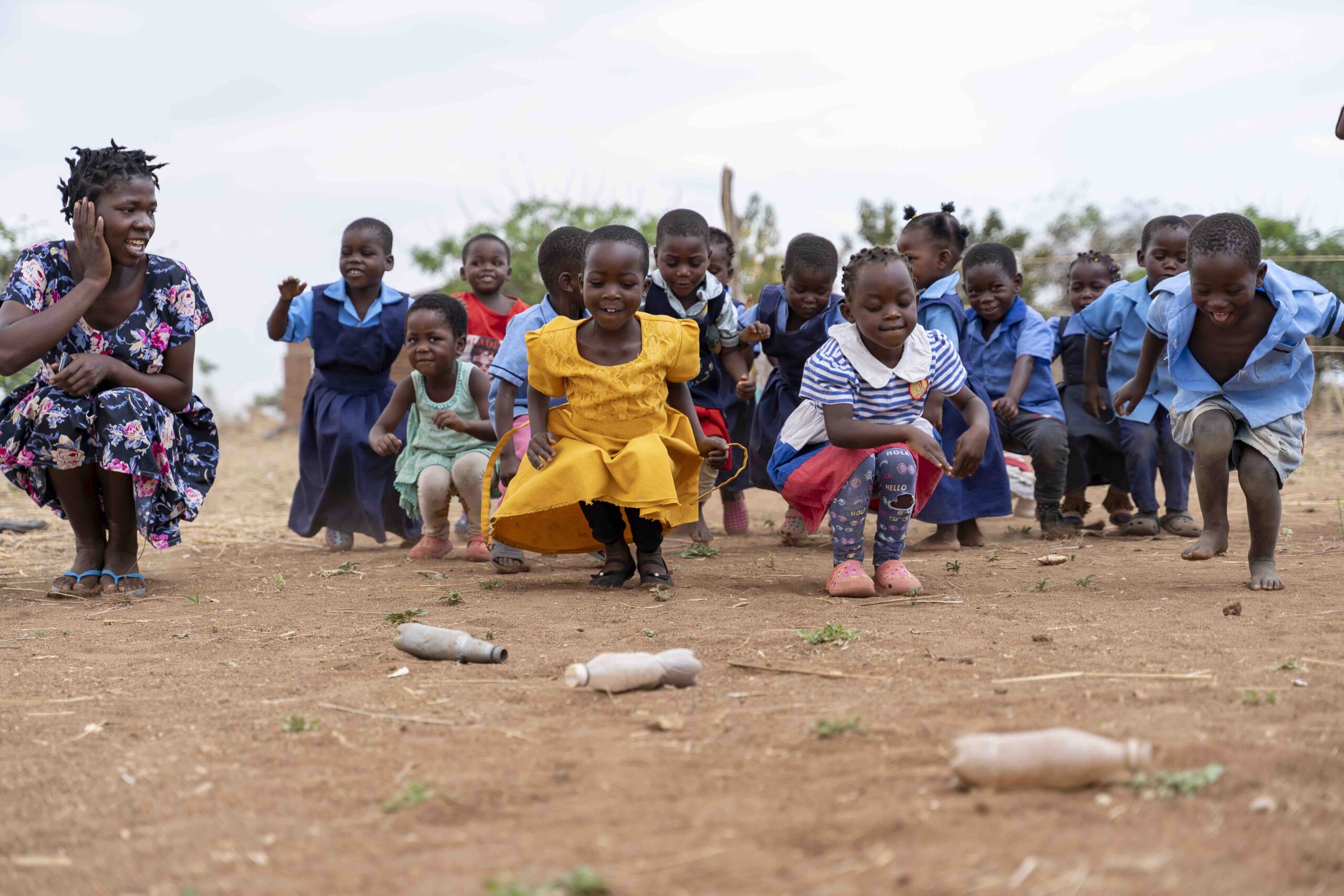Reduce extreme child poverty in Malawi by supporting caregivers
Malawi is one of the poorest countries in the world where 41% of children under five are stunted and 59% are anemic [1]. Because living in extreme poverty can cause irreversible damage to children’s health and life prospects, Yamba Malawi supports children under the age of five by providing direct cash transfers to their families, coaching to their caregivers, and building the kind of broader community supports that allows these children to thrive.
“Thanks to Yamba Malawi programs, here we are, former extremely poor people who are talking about shares in our own bank!”
– Alick, a Yamba Malawi participant

What it does
Though Yamba Malawi has been on the ground in Malawi for 15 years (previously under the name “Goods for Good”), in 2017, the organization changed its name to Yamba Malawi and shifted its focus to reducing extreme childhood poverty. It does this in two ways.
- At the household level, Yamba Malawi provides phased, intensive training and coaching to caregivers on supporting childhood wellbeing, sustainable business, and financial inclusion. The organization also provides unrestricted direct cash transfers of $20 a month to caregivers for the first year of the program. Yamba Malawi has found that caregivers use these payments to address immediate needs like food and medical bills. Once participants have developed an approved business plan, they also receive a one-time $300 transfer of startup capital to launch sustainable microbusinesses that generate ongoing profits for their families.
- At the community level, the organization helps Community-Based Organizations (CBOs) and Community-Based Childcare Centers (CBCCs), or preschools, to train and retain qualified caregivers and strengthen local governance committees to promote children’s rights and services.
Yamba Malawi currently serves approximately 55,000 children
How effective it is
Recent program data on household participants show improvements in children’s nutrition, school attendance, caregiver income, and household financial stability. The number of children in participating households eating three or more meals per day increased from 18% of children before the program to 90% of children once in the program. There was also a 71% increase in regular school attendance for children under ten years old and a 92% increase in attendance for children over ten years old. Average caregiver income increased by 259%, from an average pre-program income of $73 to an average income of $262 with an average of 85% going directly to children’s needs. The number of households with savings also increased from 2% of households to 22% through the program.
The organization has plans to reach an additional 100,000 next year and ultimately scale nationwide in Malawi.
How you can help
Yamba Malawi receives 100% of its funding from philanthropic sources. Providing general operating support allows the organization to direct funds where the money is most needed. For example, $18 can provide access to basic needs like food and clothing; $125 can foster best practices around childcare, financial management, and business skills; $500 can help launch sustainable businesses like farms, grocery stores, and tea shops. Learn more at http://give.yambamalawi.org/
More ways to help
In the U.S., LIFT provides coaching and direct cash transfers to low-income families. For another organization providing unrestricted cash transfers, see GiveDirectly. To learn more about the benefits of unrestricted cash transfer programs, see CHIP’s Guaranteed Income Primer. For more research on direct cash transfers and guaranteed income, see the Center for Guaranteed Income Research at the University of Pennsylvania.
Notes
[1] Wadhwa, D. (2018, September 19). “The number of extremely poor people continues to rise in Sub-Saharan Africa.” World Bank Blogs. https://blogs.worldbank.org/opendata/number-extremely-poor-people-continues-rise-sub-saharan-africa
[2] Banerjee, A. et al. (2015). “A multifaceted program causes lasting progress for the very poor: Evidence from six countries.” Science, 348(6236), 1260799. https://doi.org/10.1126/science.1260799
